In a historic milestone for health in the western region of Guatemala, Dr. Mariza Chan inaugurated the first radiotherapy center equipped with a linear accelerator. This technological advance represents a new era in cancer treatment for thousands of Guatemalans.

Globalization of the Pre-Owned Medical Equipment Market
Globalization of the Pre-Owned Medical Equipment Market
Did you know that many Linear Accelerators in operation in the U.S. today were pre-owned linacs sourced in Europe, Australia or Asian countries? Or that many pre-owned systems in operation in Latin America came from the U.S.? The world of pre-owned Radiation Therapy and Diagnostic Imaging Equipment has become truly global, and ROS is at the heart of this globalization. ROS recently completed a de-installation project in Central Europe where a Linear Accelerator system was relocated to a hospital in the Caribbean.
The complexities of an overseas project such as this can be enormously challenging. In the realm of Radiation Oncology, there are often regulatory obstacles, logistical challenges, language barriers, and sensitive timelines to consider.
Recent International Project
Recently, a facility in north-central Switzerland reached out to ROS for help, we were happy to assist. The Swiss facility had purchased a Varian TrueBeam radiotherapy treatment machine and needed to have their existing Linear Accelerator removed – a Varian 21EX Linear Accelerator, which weighs roughly 21,000 pounds (around 9,600 kg). The facility had upgraded the machine to the newer iX model with OBI (on-board imaging) and RapidArc. This newer technology did not dramatically change the weight of the machine, but it did pose some logistical problems later on.
There was a lot of logistical work to do before the machine could be de-installed.
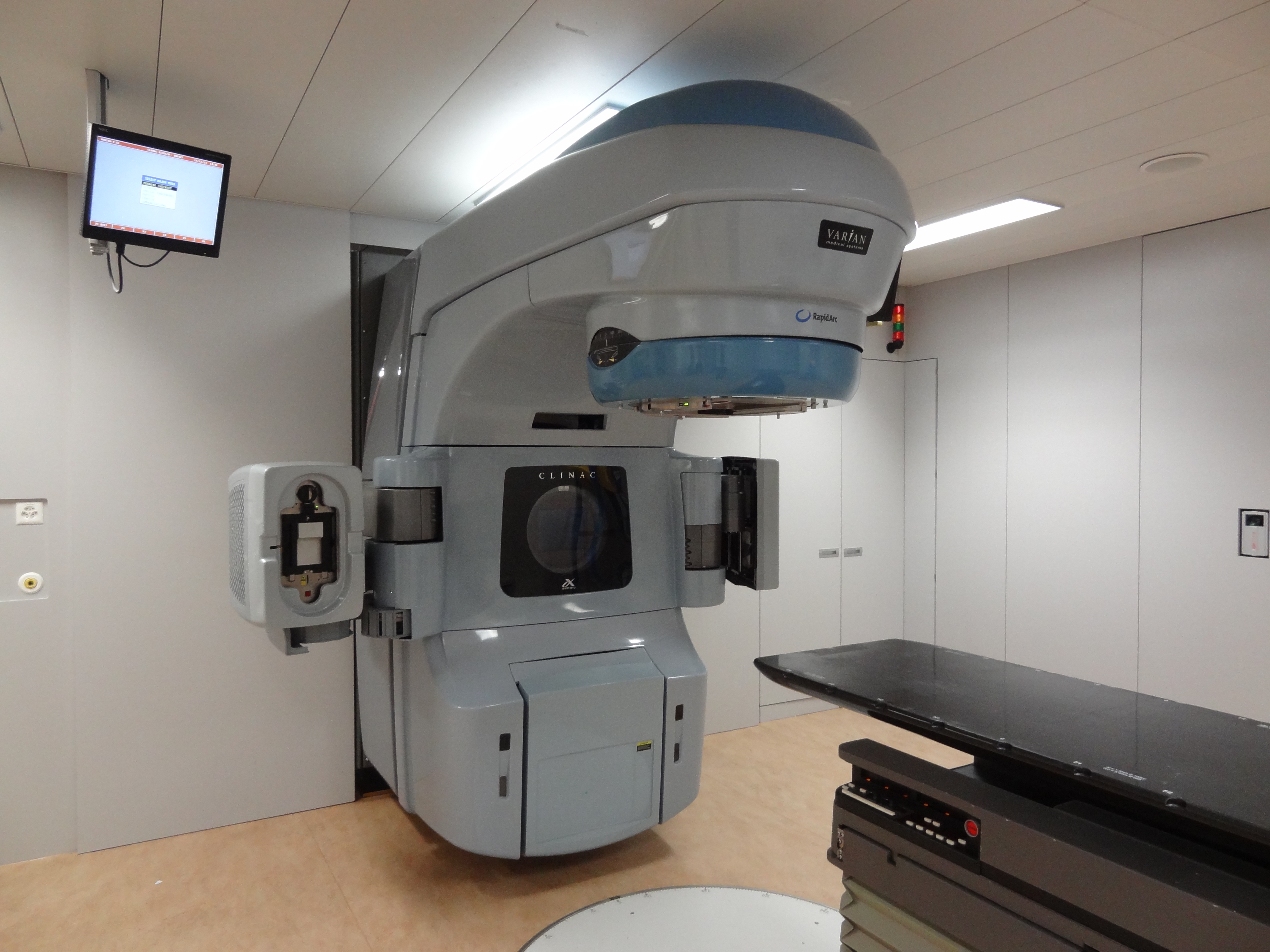
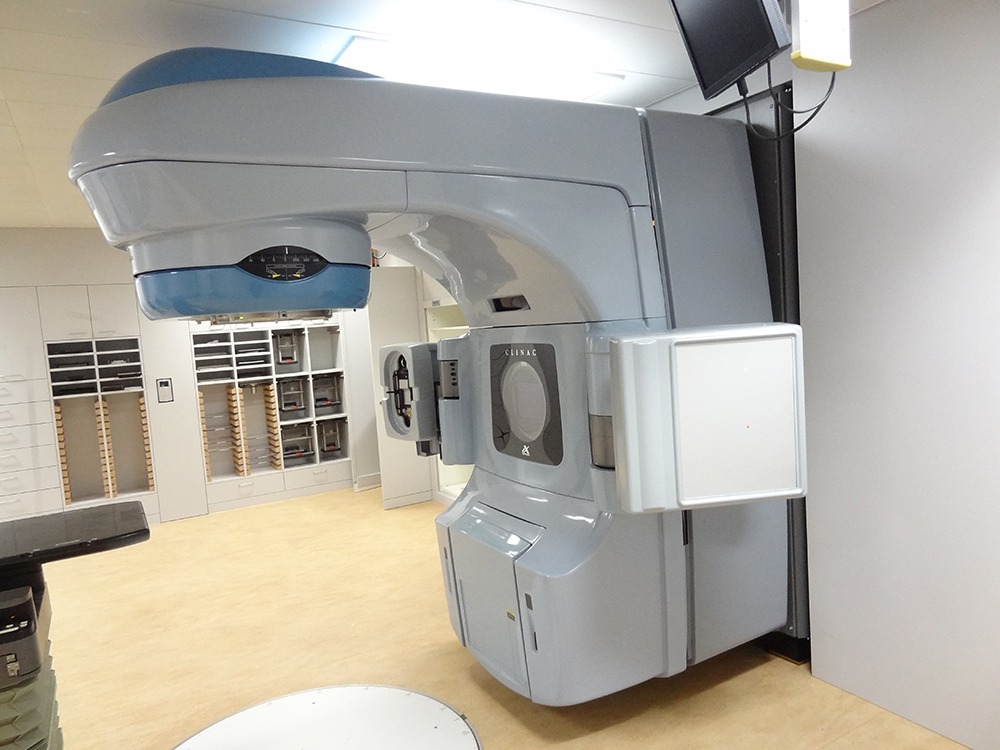
The Logistics
Prior to removing the machine, ROS first got authorization and approval from the Swiss government for the de-installation. Second, ROS also needed to get approvals from its client in the Dominican Republic, where the de-installed Varian linac would be. This necessitated having the linac inspected by an inspector from the Dominican Republic. As one can imagine, there were already three languages involved in the discussions so far but something that can become challenging with all of the technical terminology being used throughout the project.
Once the authorizations and inspections were completed, the next step involved logistics. The facility was only accessible for the de-installation on a weekend. (It is common for businesses in many European countries to be closed on weekends.) However, a weekend project in Switzerland now presented additional requirements: a special permit is needed to use freight trucks on a weekend, and another special permit is needed to use a crane on a weekend.
Now a fourth country enters the story. ROS was working with a German rigging company to move the Linear Accelerator using its shipping frames. EU regulations required the frames to be shipped directly to the facility rather than brought with the riggers. So if the frames were delayed, the project’s small window could expire. A further complication occurred when the riggers were delayed at the German/Swiss border, but thankfully they got there in time, as did our frames.
After a final inspection, it was only a small matter to visit Coop Cooperative (a large Swiss retailer) to pick up the last few supplies needed to finish the de-installation and move the equipment to the crating facility. Now another deadline was looming: the crating facility was only open for a two-hour window on Saturday afternoons.
With no time to spare, the Linear Accelerator system was loaded and off to the crating facility.
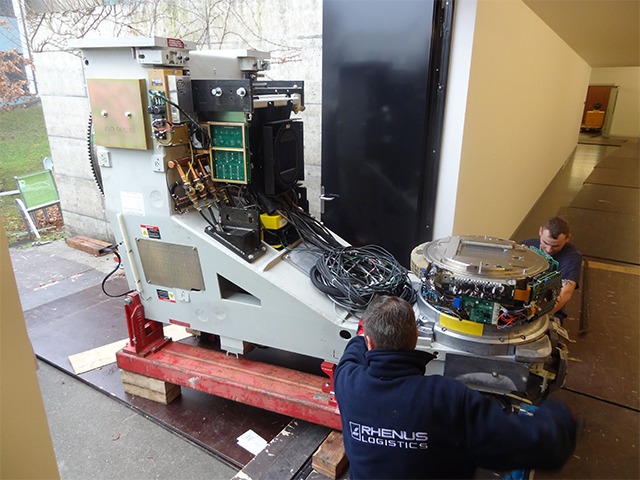
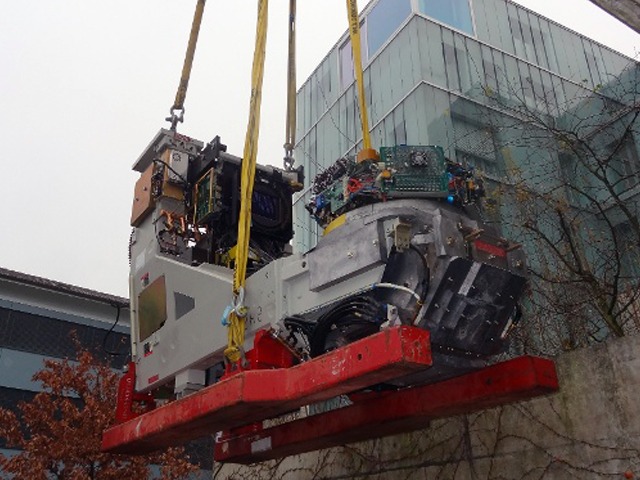
From Europe to Latin America
Crating a radiotherapy machine for international shipment requires special care and materials. The wood used must be heat-treated and ISPM-15 approved (the ISPM-15 measures are to prevent accidental transport of disease and insects from one country to another). ROS also needed special crating for the KV-Imaging Device and the Portal Imaging devices, important components of the Varian Linear Accelerator. Such highly specialized equipment could easily become damaged on the long journey across the Atlantic.
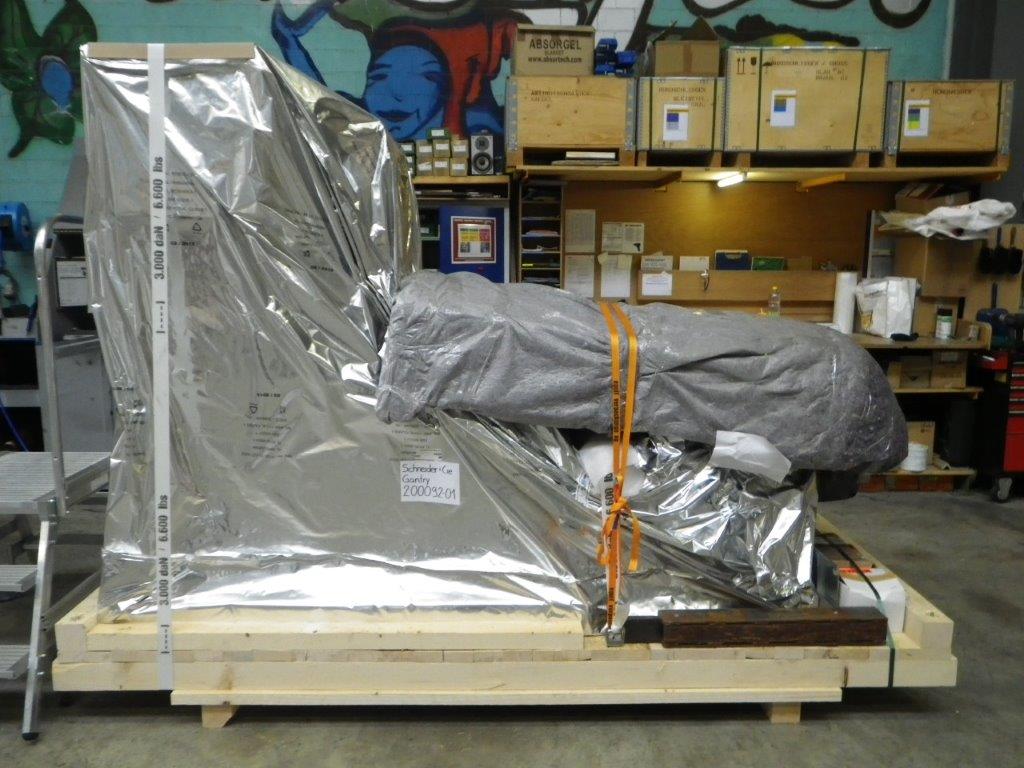

ROS crossed these last few hurdles for the de-installation project and the upcoming shipment to the Dominican Republic. Working across cultures and language barriers, and working within each country’s regulations, takes an experienced vendor. If you have such a project in mind, please feel free to contact ROS. We thrive with complex, international projects!



Comments (0)